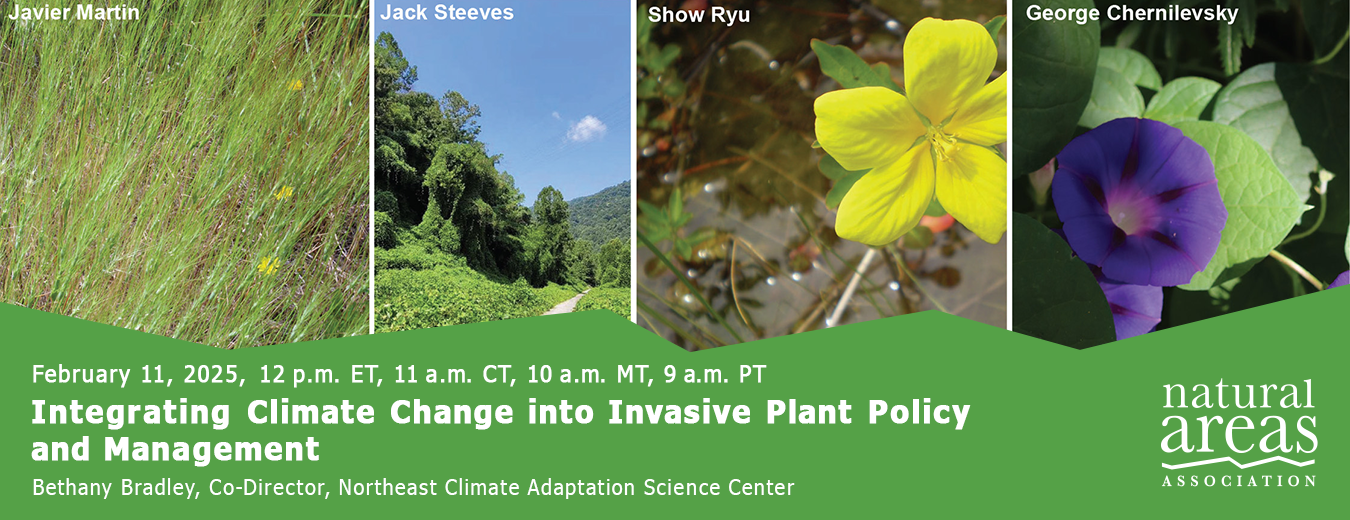
Invasive species and climate change are two of the most prominent drivers of ecological impacts on natural areas. Ongoing invasive species threats are likely to interact with climate change to the further detriment of ecosystems. However, ‘climate-smart’ invasive species policy and management that anticipates a changing invasion landscape could ameliorate future ecological impacts. This presentation will discuss recommendations based on what works and doesn’t work in the US. Key changes to adapt invasive species management to climate change include increasing information sharing across borders, supporting horizon scanning and proactive regulation of high-risk species, and incentivizing individual actions that reduce ecological harm.

Bethany Bradley, Co-Director, Northeast Climate Adaptation Science Center
Bethany Bradley is a Professor of Biogeography and Invasion Ecology in the Department of Environmental Conservation at the University of Massachusetts, Amherst, USA. Her research has a strong focus on terrestrial plant invasions, with a goal of understanding how invasive plant distributions, abundance, and impact vary spatially. Bethany also leads the Northeast Regional Invasive Species & Climate Change (RISCC) Management network, which addresses the question of how we can better manage for upcoming biological invasions in light of climate change.
Support the people who manage our natural areas and protect biodiversity in perpetuity.